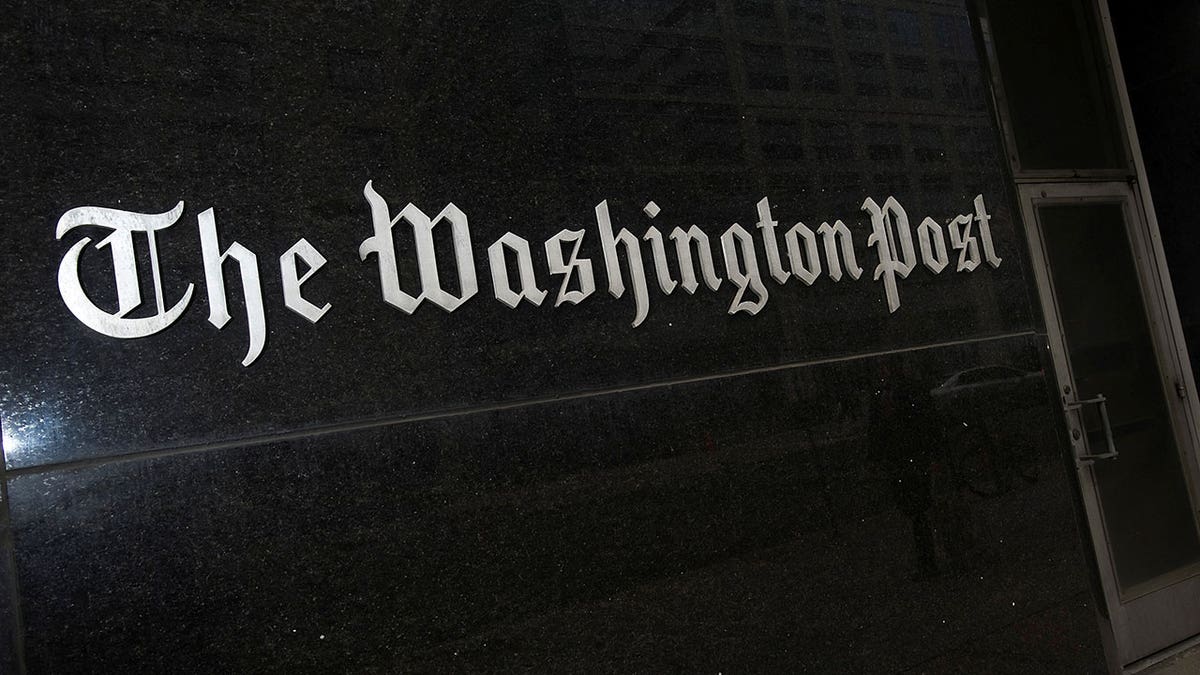Gutfeld: Elon Musk suspends journalist over 'doxxing' policy
Fox News host Greg Gutfeld goes over this week's leftovers and 'Gutfeld!' panelists react to Elon Musk suspending journalists from Twitter for 'doxxing.'
A Washington Post report noted that despite social media companies complaining about Twitter owner Elon Musk making the platform "hostile to free speech," they’re not willing to step away from promoting their content on the site.
The piece detailed the media complaints against Musk suspending the accounts of several prominent journalists, Thursday, but mentioned how these outlets have continued to publish their stories on the social media platform "without exception."
The Post explained this dynamic, saying traditional news outlets still see Twitter and other social media platforms "as much of an opportunity as a threat" and have been unwilling to step away from them.

Elon Musk speaks in Washington. (AP Photo/Susan Walsh, File)
Washington Post reporters Jeremy Barr and Sarah Ellison published their analysis Saturday morning, titled, "Musk reinstates some reporters on Twitter. But their companies never left."
The article’s subheadline captured the almost dissonant stance these outlets have on Twitter, stating, "Despite outrage over a move viewed as hostile to free speech -- even by Musk’s conservative allies -- media companies continued to tweet, in keeping with their conflicted relationship with Twitter."
It opened by describing the complaints media bosses had against Musk’s "baffling" move Thursday, writing, "When Twitter abruptly suspended the accounts of several prominent journalists Thursday night — in response to a baffling claim from new owner Elon Musk that they had endangered his safety — media bosses were quick to speak out in protest."
The piece continued: "The New York Times called the suspensions ‘questionable.’ CNN said it would ‘re-evaluate’ its relationship with Twitter. The Washington Post demanded that Twitter reinstate the account of one of its technology reporters ‘immediately,’ noting that he had simply reported accurately on Musk."
TWITTER FILES PART 6 REVEALS FBI'S TIES TO TECH GIANT: ‘AS IF IT WERE A SUBSIDIARY’

The Washington Post executive editor Sally Buzbee said "suspension of Drew Harwell's Twitter account directly undermines Elon Musk's claim that he intends to run Twitter as a platform dedicated to free speech." (REUTERS/Jonathan Ernst/File Photo)
It added, "One news start-up, Puck, said it would suspend its paid advertising campaign on Twitter, while another, Semafor, was evaluating its own marketing push."
However, the outlet noted that, "without exception, these media organizations kept on tweeting at their usual busy paces Thursday night and into Friday — using their own official accounts to promote their latest stories."
The reporters claimed this situation "epitomized the conflicted, and seemingly codependent, relationship between the news media and social media."
They then dove into the history of this "conflicted" relationship, stating, "In the 15 years since sites like Twitter and Facebook exploded in popularity, traditional news outlets have resolved to see them as much of an opportunity as a threat — potent new vectors for delivering the news directly to the screens of avid readers."
CLICK HERE TO GET THE FOX NEWS APP
The piece added, "Publishers have invested heavily in staff whose primary role is to fine-tune and promote stories over social media; editors prize journalists who have amassed tens of thousands of Twitter followers for the traffic they can bring to their sites."
Despite mentioning that "some managers have started to question whether Twitter traffic is actually worth the effort," the Post observed that "the modest response Friday to a maneuver that drew widespread rebukes from free-speech advocates — as well as from the European Commission, United Nations and members of Congress — suggest that they won’t be quitting it soon."

NEW YORK, NEW YORK - MAY 02: Elon Musk attends The 2022 Met Gala Celebrating "In America: An Anthology of Fashion" at The Metropolitan Museum of Art on May 02, 2022 in New York City. ( (Photo by Dimitrios Kambouris/Getty Images for The Met Museum/Vogue))


